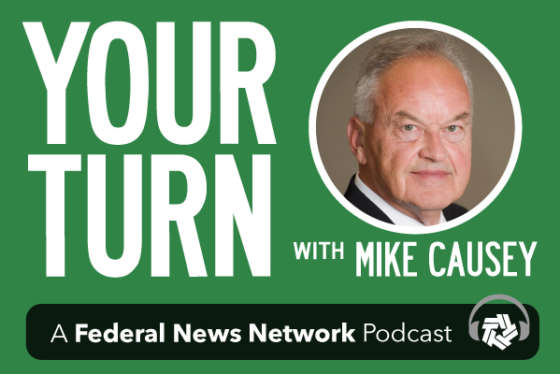Best listening experience is on Chrome, Firefox or Safari. Subscribe to Federal Drive’s daily audio interviews on Apple Podcasts or PodcastOne.
With a month to go before April 15, and the coronavirus scare stronger than ever, the hackneyed expression about “death and taxes” might be poised to make a comeback.
Tom O’Rourke, a D.C. area tax attorney and estate planner, said on Your Turn with Mike Causey that the overwhelming coverage in local and national news sources has his phone ringing off the hook.
“It emphasizes to people their mortality,” O’Rourke said. “And that causes them to think, ‘gee, do I have all my ducks in a row, just in case I’m part of the 2% who could be adversely affected?’”
Before the unthinkable happens, he said, you simply need to consult your estate planner to get a prudent plan in place. That should stop the worrying and, if need be, sometimes you have to revise documents to reflect changes in family relationships.
O’Rourke’s clients have been worried about two things the past few weeks: COVID-19 and their Thrift Savings Plans, the latter of which is down some 17% in some cases. But his advice is not to panic.
“If you had a million dollars in your TSP, it’s now down to $800,000.”
With the April 15 tax deadline looming, O’Rourke stressed listeners should avoid being among the 1.6 million Americans who are required to file a tax return, but do not.
The IRS is aggressively identifying those who have failed to file.
“The only reason our system works is because most people voluntarily comply,” O’Rourke said. “And for those who don’t,” the IRS could very likely come knocking.
O’Rourke, who spent a decade working for the IRS, says the agency will mail you several letters about your failure to pay. If that does not work, they will make an unannounced visit to your home or business.
Then there’s the growing issue of phone-calling scammers. O’Rourke offered a few tips to avoid being scammed: do not expect emails or phone calls from the IRS and don’t fall for threats that you must pay immediately or you will be arrested.
Some of O’Rourke’s clients dream of going to a state where there is no sales tax or where their retirement income is not taxed.
“The best state is where you want to be. Remember, somebody’s got to support the government services in the area where you live,” he said. “If a state has no sales or income tax, the money is made up from somewhere else.”
Copyright
© 2024 Federal News Network. All rights reserved. This website is not intended for users located within the European Economic Area.

